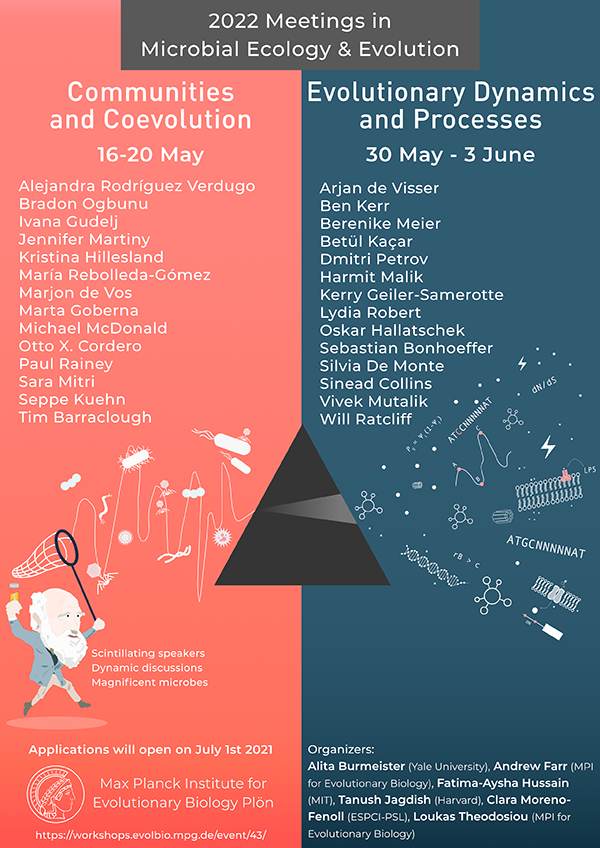Speaker
Description
Bacteria require a diverse set of metabolites to proliferate. While some bacteria fulfil their metabolic needs through de novo biosynthesis, others rely on uptake. Mechanisms enabling stable metabolite provisioning among free-living bacteria, i.e., in the absence of means for positive assortment, remain largely unclear. Particularly, since the production of ‘public goods’ bares the inherent risk of overexploitation which may result in community deterioration and extinction. Metabolites may be obtained via degradation of environmental material, e.g., proteolysis. Yet, degradation is inherently limited to compound metabolites such as polypeptides and polysaccharides. Salvaging, the process of recycling and reusing, on the contrary is applicable to practically all classes of metabolites. Here, we investigate the salvaging of cobamides (vitamin B12-like enzyme cofactors) and explore its impact on bacterial population dynamics and stability. We used synthetic Escherichia coli co-cultures, metabolite profiling via high-performance liquid chromatography (HPLC), and flow cytometry to investigate the salvaging of cobamides in multi-member bacterial populations. We observed that salvaged cobamides were readily released and provisioned to other population members. This unprompted release of metabolically valuable cobamides was surprising as it invites overexploitation by non-productive (i.e., non-salvaging) population members. We were able to show that salvagers were innately protected from overexploitation due to partial privatization of the salvaged cobamides. Due to its intracellular nature, salvagers were able to retain preferential access to salvaged cobamides even in the absence of means for positive assortment, such as growth in structured habitats in which non-productive members can be spatially excluded. We found that salvaging of cobamides can lead to unprompted metabolite provisioning which is inherently protected from overexploitation. Our findings are likely transferable to other intracellular metabolites and may apply for salvaging as well as de novo biosynthesis. In sum, salvaging may represent on overlooked, yet prevalent, mode of metabolite acquisition and provisioning, particularly in environments that do not provide easy means for positive assortment (e.g., free-living bacterial communities).

